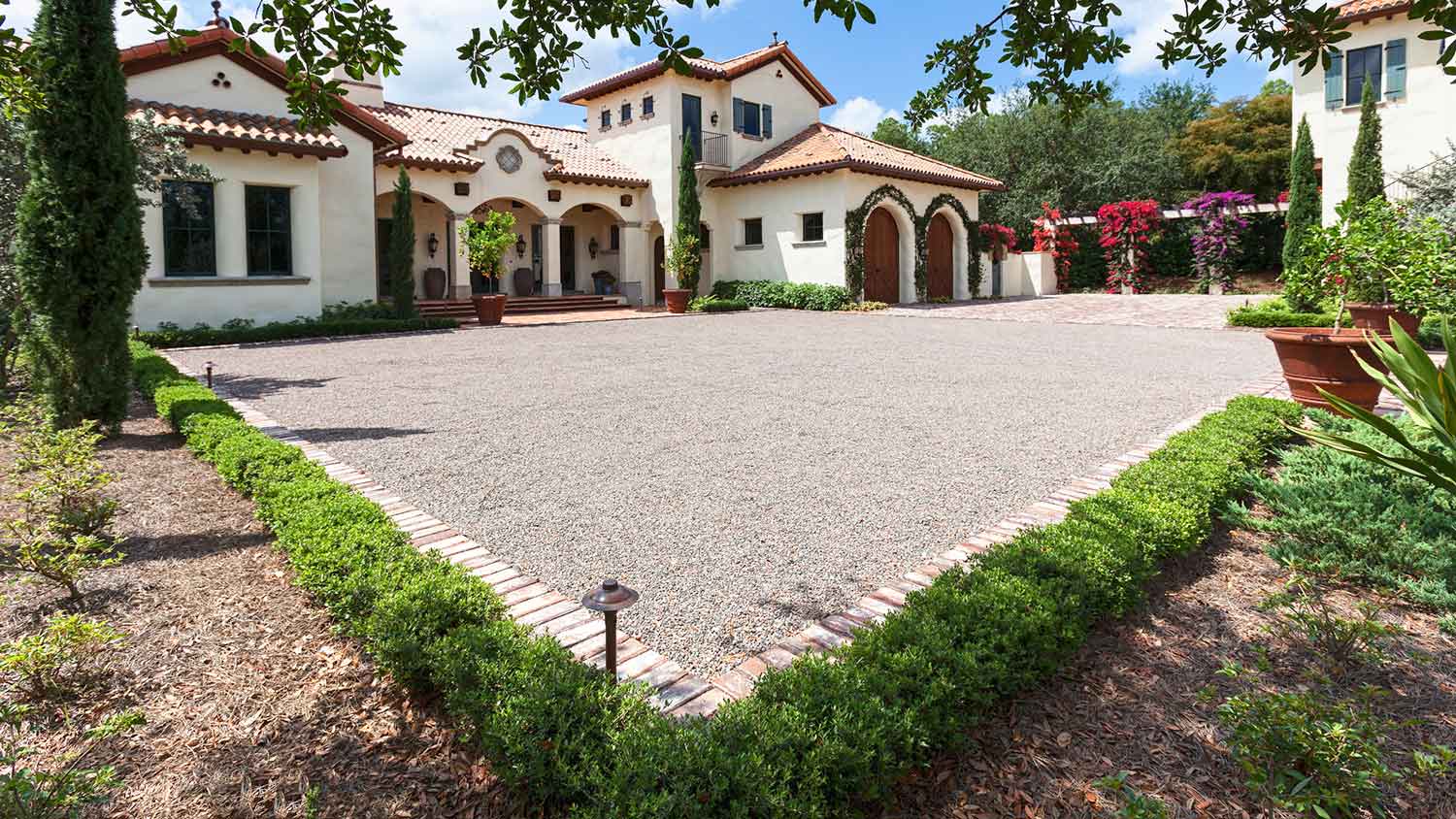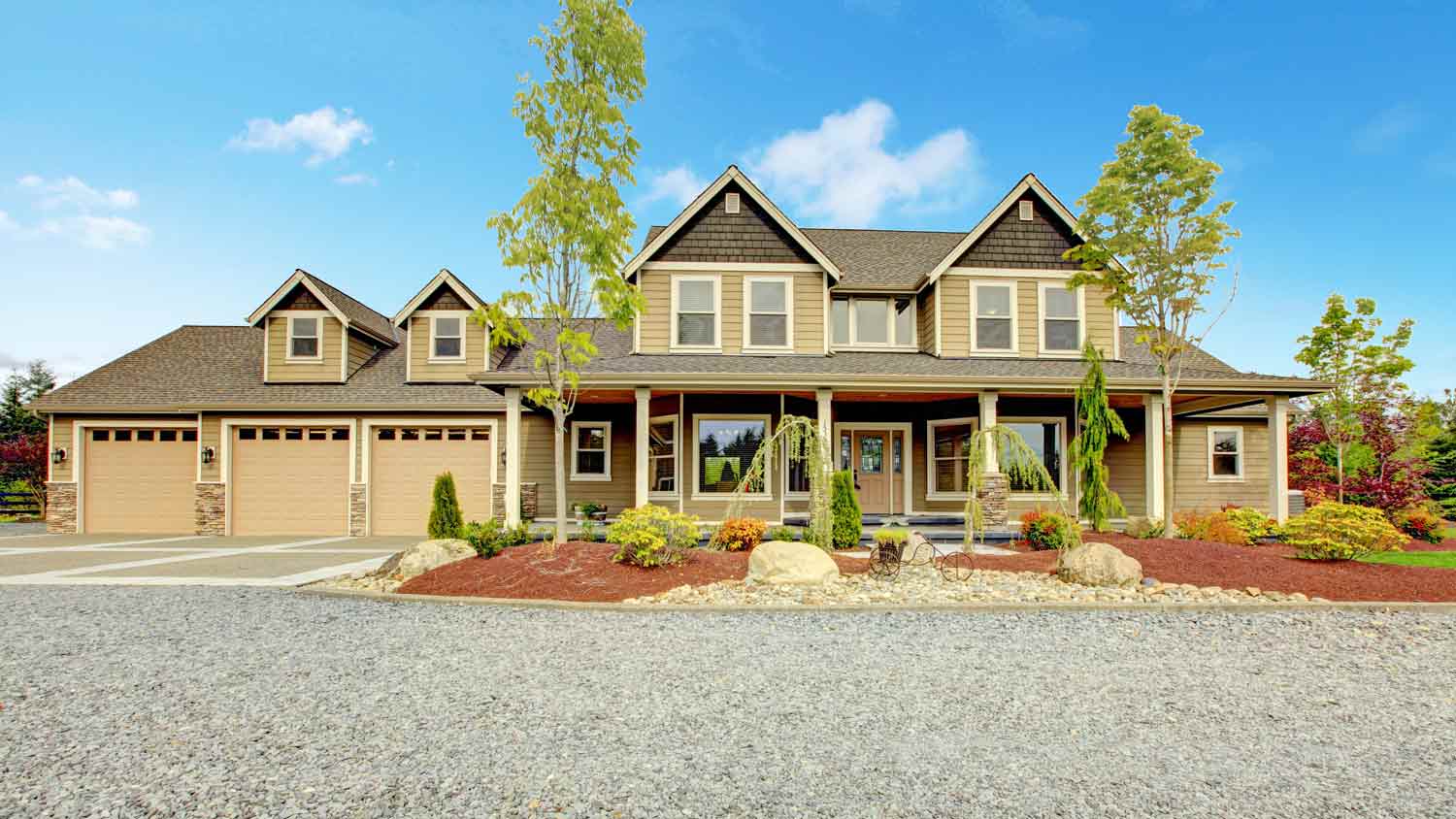
Discover the average gravel driveway cost, including price ranges, installation factors, and tips to help you budget for your new gravel driveway.



*The Angi rating for Gravel Driveway Service companies in is a rating based on verified reviews from our community of homeowners who have used these pros to meet their Gravel Driveway Service needs.
*The HomeAdvisor rating for Gravel Driveway Service companies in is a rating based on verified reviews from our community of homeowners who have used these pros to meet their Gravel Driveway Service needs.
Last update on
The average cost of a gravel driveway is about $1.25 to $2 per square foot, including the cost of materials, equipment, and professional installation. For example, a 16-by-30-foot driveway costs about $1,500. Cost factors include the type of gravel, how thick the gravel is installed, the condition of the landscape, and labor costs. Overall costs will vary depending on where you live and how accessible the job site is.
Because gravel moves, it requires different maintenance than asphalt or concrete. Here are a few maintenance tips for your gravel driveway. Every few years (or as often as needed):
Grade and level your driveway
Rake to fill holes and ruts
Compact any refilled potholes
Remove weeds with herbicide or by hand
Spray it with water to reduce the amount of dust kicked up
Avoid using a snowplow during winter months
A gravel driveway should last for up to 100 years with proper upkeep, which is minimal. Maintaining a gravel driveway includes grading and adding fresh gravel to fill in potholes. Otherwise, a gravel driveway holds up well to all kinds of weather. Plowing in the winter can be challenging and the gravel can develop ruts or potholes that need to be repaired, but the cost and longevity of gravel compared to concrete, asphalt, and pavers makes gravel an economical option, especially for long and/or wide driveways.
A gravel driveway should be at least 4 to 6 inches deep, depending on the soil it’s installed on. Softer soil that doesn’t drain well should have a deeper gravel driveway. Deeper gravel will mean you spend more on materials and labor, but you’ll get a more stable driveway and avoid damage that needs to be filled or graded flat again.
From average costs to expert advice, get all the answers you need to get your job done.

Discover the average gravel driveway cost, including price ranges, installation factors, and tips to help you budget for your new gravel driveway.

Discover the average gravel pad for shed cost, including installation, materials, and tips to save money. Get a detailed breakdown to plan your shed foundation project.

Before you contact a pro to lay gravel or loose fill for your driveway, walkway, or garden, review these gravel installation questions.

Wondering whether to use large or small gravel? This guide breaks down the key differences based on factors like drainage, stability, and maintenance to help you choose the right size for your project.

The layer of dust on your driveway makes its way onto everything, including your car and windows. Learn how you can get rid of dust on your gravel driveway.

Find out the best types of landscaping rocks for your home’s next outdoor project, from solving drainage problems to installing retaining walls and terraces.